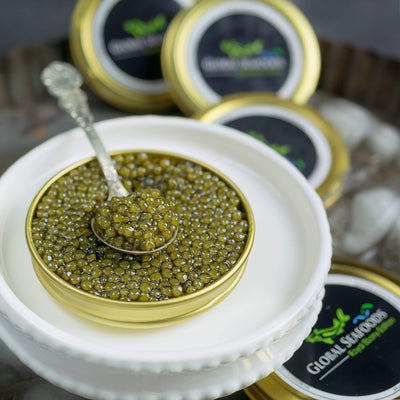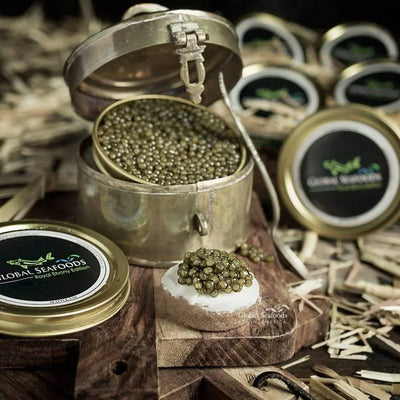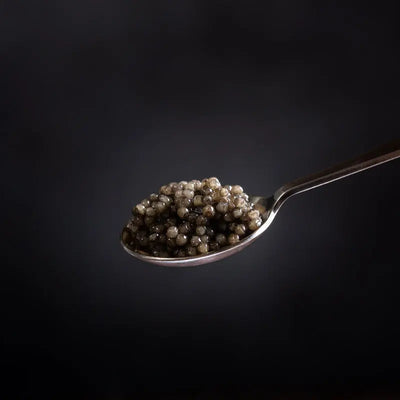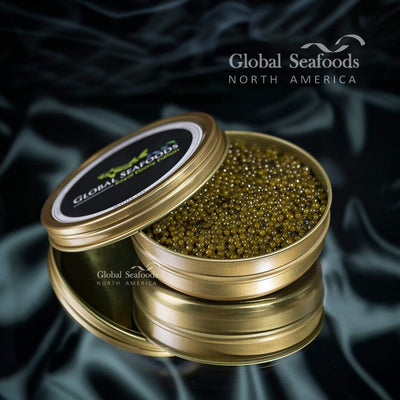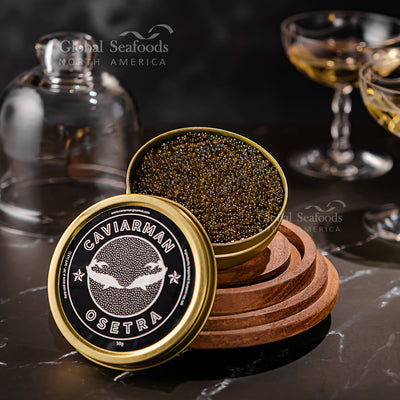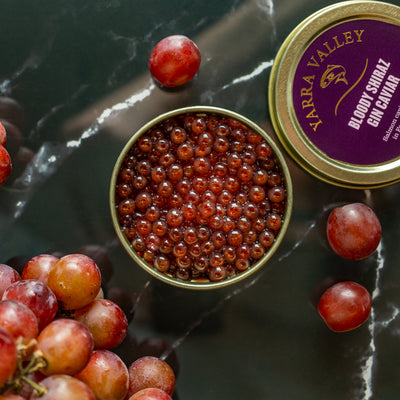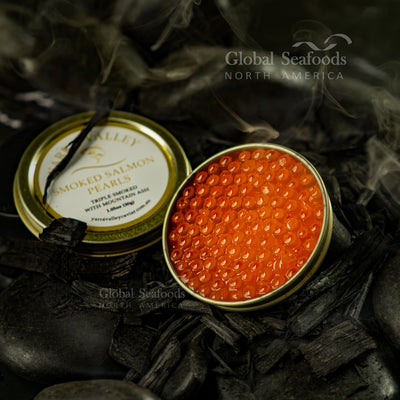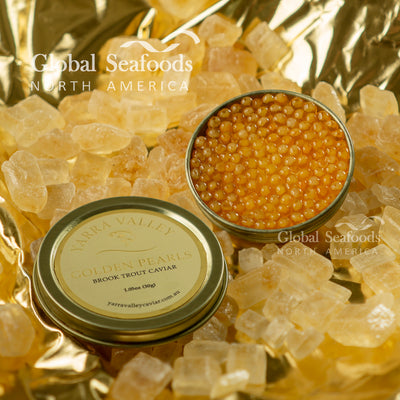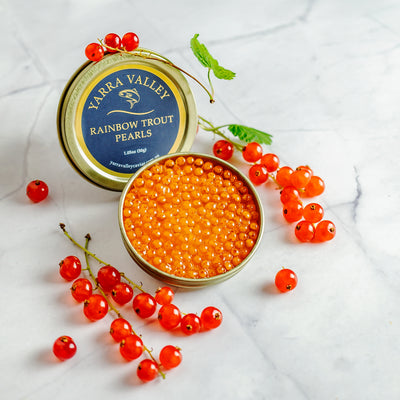+Shop Now
+Categories
- Abalone
- Ahi Tuna
- Alaskan King Crab Legs
- Alaskan Pollock
- Alaskan Sockeye Salmon
- Albacore Tuna
- Anchovy
- Anxiety Relief
- appetizer
- Atlantic Salmon
- Beluga Caviar
- Best Sushi
- black caviar
- black cod
- Blue crabs
- Bluefin Tuna
- Brain Function
- Branzino
- breakfast
- Calamari
- caviar
- Caviar Recipes
- Chef Knives
- Chilean Sea Bass
- Clams
- cocktail caviar
- Cod
- Coho Salmon Caviar
- collagen
- Cooking Methods
- crab
- Crab Balls
- Crab Cakes
- Crab claws
- crab meat
- Crab Recipes
- culinary tips
- decline-sturgeon
- Diver Scallops
- Dover Sole
- Dry Aged Fish
- Dungeness Crab
- Dungeness crab clusters
- Dungeness Crab Legs
- Exotic Shellfish Sampler
- Fish and Seafood
- fish oil
- Fish Sauce
- flat fish
- FLOUNDER FISH
- Focus
- Fresh Seafood Delivery
- Fresh Wild Alaskan Salmon
- Geoduck
- Gooseneck Barnacles
- Gourmet Seafood Platter
- haddock
- halibut
- Halibut Recipes
- hamachi
- Hamachi Recipe
- health
- healthy eating
- Ikura
- Japanese restaurants
- Jonah crab
- Jumbo Sea Scallops
- Kaluga Caviar
- kelp
- king crab
- King Crab Legs
- King Salmon
- kitchen
- Lingcod
- Live King Crab
- Live Lobsters for Sale
- Live Scallops
- Live seafood
- lobster
- Lobster Tail
- luxury food
- mahi mahi
- Marine Collagen
- Mollusk
- Monkfish
- Mussels
- New
- Nutrition
- octopus
- Opah
- Ora King Salmon
- Osetra Caviar
- Ossetra Sturgeon Caviar
- oysters
- Pacific Cod
- Pacific Hake
- Pacific Halibut
- Pacific Ocean
- Pacific Whiting
- Pacific Whiting Recipe
- Paddlefish Caviar
- Petite Oysters
- Petrale Sole
- Poke Tuna
- Pollock
- Pregnancy
- Premium Caviar Selection
- Recipe
- red caviar
- Red Crab
- rock fish
- Rockfish
- Rockfish Recipes
- sablefish
- Sablefish (Black Cod) Recipes
- salmon
- Salmon Caviar
- Salmon lox
- Salmon Poke
- Salmon Recipes
- salmon roe
- Sardines
- Sashimi
- Sashimi-Grade Tuna
- Scallop
- scallops
- Scallops Recipe
- Sea Urchi Recipe
- sea urchin
- Sea Urchin Sushi
- sea weed
- Seafood
- Seafood Dishes
- Seafood Market
- Seafood Recipe
- Seafood Restaurants
- sevruga caviar
- shellfish
- Shrimps & Prawns
- Silver Salmon
- Smoked
- Smoked Salmon
- Smoked Tuna
- Snail Caviar
- Snapper Recipe
- snow crab
- Sole & Flounder Recipes
- Squid
- Steelhead
- Sturgeon Caviar
- Sustainable Seafood Choices
- Swordfish
- Tilapia
- Tilapia Fish
- Tobiko
- Trout
- tuna
- Tuna Recipe
- weathervane scallops
- white fish
- White Sturgeon
- White Sturgeon Caviar
- Whiting Fish
- Wild Caught Shrimp
- Yellowfin Tuna
- Yellowtail snapper
French Caviar: Luxury Taste, Perfect Pairings, and Health Benefits
January 16, 2025

French Caviar: The Ultimate Guide to Taste, Pairings, and Nutrition
French caviar is a luxurious delicacy that symbolizes sophistication and culinary excellence. Known for its refined flavor, velvety texture, and exceptional quality, French caviar stands as a favorite among gourmet enthusiasts. Whether you’re a seasoned caviar connoisseur or new to this delicacy, this guide will provide everything you need to know about French caviar, including its nutritional value, serving tips, and pairing ideas.
What is French Caviar?
Caviar is the salted roe of specific fish, particularly sturgeon. French caviar is celebrated globally for its exceptional quality, delicate flavor, and sustainable production methods.
1. The Origins of French Caviar
Although caviar is traditionally associated with the Caspian and Black Seas, France has become a leading producer, crafting premium caviar varieties using sustainable aquaculture.
2. Varieties of French Caviar
- Beluga Caviar: Known for its large pearls and creamy, buttery flavor.
- Osetra Caviar: Offers medium-sized, golden-to-dark pearls with a nutty, briny taste.
- Sevruga Caviar: Features smaller, more intensely flavored pearls.
Discover premium varieties like Osetra Caviar and Kaluga Caviar for a luxurious experience.
Why French Caviar Stands Out
1. Superior Flavor Profile
French caviar delivers a balanced taste that is rich, buttery, and slightly briny. The delicate pearls burst with complex flavors, offering a truly indulgent experience.
2. Eco-Friendly Practices
France is known for sustainable aquaculture techniques that protect sturgeon populations while ensuring the highest quality product. Look for caviar with certifications that guarantee ethical sourcing.
Health Benefits of French Caviar
1. Packed with Omega-3 Fatty Acids
French caviar is rich in omega-3s, which:
- Support heart health by reducing cholesterol and inflammation.
- Enhance brain function and memory.
- Improve skin elasticity and hydration.
2. High in Essential Vitamins
- Vitamin B12: Boosts energy and supports nerve health.
- Vitamin D: Promotes strong bones and immunity.
- Vitamin A: Enhances vision and skin health.
3. Mineral-Rich Superfood
French caviar is a natural source of:
- Iron: Essential for healthy red blood cells.
- Selenium: A powerful antioxidant that protects cells.
- Magnesium: Supports muscle and nerve function.
How to Serve French Caviar
1. Presentation Tips
- Keep It Cold: Serve caviar chilled on a bed of crushed ice to maintain its freshness.
- Use Non-Metallic Utensils: Opt for mother-of-pearl or glass spoons to preserve its delicate flavor.
2. Traditional Pairings
- Blinis: Light, fluffy pancakes provide the perfect base.
- Crème Fraîche: Adds a creamy, tangy contrast.
- Toast Points: Simple and slightly crispy for added texture.
3. Beverage Pairings
- Champagne: The effervescence complements the richness of caviar.
- Vodka: A classic pairing that enhances the briny flavor.
- Dry White Wine: Crisp and refreshing, perfect for balancing the caviar's buttery notes.
FAQs About French Caviar
1. How should I store French caviar?
Unopened caviar should be refrigerated at 28–32°F (-2–0°C). Once opened, consume it within 2–3 days for the best flavor.
2. Can vegetarians enjoy caviar?
Traditional caviar is not vegetarian, but plant-based alternatives made from seaweed offer a similar texture and appearance.
3. What makes French caviar unique?
Its eco-friendly production, consistent quality, and delicate yet complex flavor make French caviar a standout choice in the global market.
4. How can I enjoy caviar on a budget?
Explore more affordable options like Paddlefish Caviar or Sevruga Caviar for a luxurious experience at a lower price point.
Explore Premium French Caviar Selections
Elevate your dining experience with our curated selection of luxury caviar:
For pairing ideas and recipes, check out our YouTube channel for expert tips.
Conclusion
French caviar embodies the epitome of luxury, blending exquisite flavors, premium quality, and health benefits. Whether you’re savoring it at a special occasion or elevating an everyday meal, this delicacy promises a gourmet experience like no other.
Indulge in the world of French caviar and discover why it remains a symbol of sophistication. Shop premium caviar at Global Seafoods and savor the unparalleled taste of this culinary masterpiece.
Discover More
Elevate your palate with the finest French caviar because every indulgence deserves perfection!
Related Products
Share:
Also in News

How to Make Sea Bream Sushi With Dry-Aged Tuna & Crab Roll — Step-by-Step With Chef Joshua
December 07, 2025
A complete guide to making Sea Bream sushi at home, including filleting, curing, slicing, and building a Dry-Aged Tuna & Crab sushi roll. Chef Joshua shares professional tips for restaurant-quality results.

Cooked Crab for Game Night: Everything You Need for a Perfect Seafood Party
June 27, 2025
Take your game night to the next level with a Cooked crab party. Learn the best recipes, cooking tips, and hosting hacks for a memorable seafood feast.

Steam Crab for Date Night: A Romantic Guide to the Perfect Seafood Feast
June 27, 2025
Make your next date night unforgettable with a romantic Steam crab experience. This guide covers everything you need to know, from ambiance to the best crab varieties.
+Shop Now
+Categories
- Abalone
- Ahi Tuna
- Alaskan King Crab Legs
- Alaskan Pollock
- Alaskan Sockeye Salmon
- Albacore Tuna
- Anchovy
- Anxiety Relief
- appetizer
- Atlantic Salmon
- Beluga Caviar
- Best Sushi
- black caviar
- black cod
- Blue crabs
- Bluefin Tuna
- Brain Function
- Branzino
- breakfast
- Calamari
- caviar
- Caviar Recipes
- Chef Knives
- Chilean Sea Bass
- Clams
- cocktail caviar
- Cod
- Coho Salmon Caviar
- collagen
- Cooking Methods
- crab
- Crab Balls
- Crab Cakes
- Crab claws
- crab meat
- Crab Recipes
- culinary tips
- decline-sturgeon
- Diver Scallops
- Dover Sole
- Dry Aged Fish
- Dungeness Crab
- Dungeness crab clusters
- Dungeness Crab Legs
- Exotic Shellfish Sampler
- Fish and Seafood
- fish oil
- Fish Sauce
- flat fish
- FLOUNDER FISH
- Focus
- Fresh Seafood Delivery
- Fresh Wild Alaskan Salmon
- Geoduck
- Gooseneck Barnacles
- Gourmet Seafood Platter
- haddock
- halibut
- Halibut Recipes
- hamachi
- Hamachi Recipe
- health
- healthy eating
- Ikura
- Japanese restaurants
- Jonah crab
- Jumbo Sea Scallops
- Kaluga Caviar
- kelp
- king crab
- King Crab Legs
- King Salmon
- kitchen
- Lingcod
- Live King Crab
- Live Lobsters for Sale
- Live Scallops
- Live seafood
- lobster
- Lobster Tail
- luxury food
- mahi mahi
- Marine Collagen
- Mollusk
- Monkfish
- Mussels
- New
- Nutrition
- octopus
- Opah
- Ora King Salmon
- Osetra Caviar
- Ossetra Sturgeon Caviar
- oysters
- Pacific Cod
- Pacific Hake
- Pacific Halibut
- Pacific Ocean
- Pacific Whiting
- Pacific Whiting Recipe
- Paddlefish Caviar
- Petite Oysters
- Petrale Sole
- Poke Tuna
- Pollock
- Pregnancy
- Premium Caviar Selection
- Recipe
- red caviar
- Red Crab
- rock fish
- Rockfish
- Rockfish Recipes
- sablefish
- Sablefish (Black Cod) Recipes
- salmon
- Salmon Caviar
- Salmon lox
- Salmon Poke
- Salmon Recipes
- salmon roe
- Sardines
- Sashimi
- Sashimi-Grade Tuna
- Scallop
- scallops
- Scallops Recipe
- Sea Urchi Recipe
- sea urchin
- Sea Urchin Sushi
- sea weed
- Seafood
- Seafood Dishes
- Seafood Market
- Seafood Recipe
- Seafood Restaurants
- sevruga caviar
- shellfish
- Shrimps & Prawns
- Silver Salmon
- Smoked
- Smoked Salmon
- Smoked Tuna
- Snail Caviar
- Snapper Recipe
- snow crab
- Sole & Flounder Recipes
- Squid
- Steelhead
- Sturgeon Caviar
- Sustainable Seafood Choices
- Swordfish
- Tilapia
- Tilapia Fish
- Tobiko
- Trout
- tuna
- Tuna Recipe
- weathervane scallops
- white fish
- White Sturgeon
- White Sturgeon Caviar
- Whiting Fish
- Wild Caught Shrimp
- Yellowfin Tuna
- Yellowtail snapper
Shop Now
Main
News & Updates
Sign up to get the latest on sales, new releases and more…
© 2026 Global Seafoods North America.

